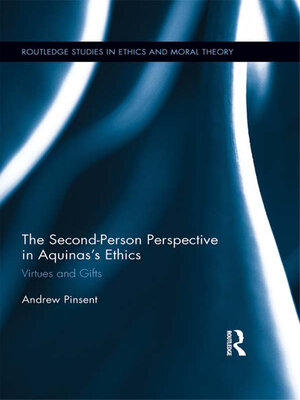The Second-Person Perspective in Aquinas's Ethics
ebook ∣ Virtues and Gifts · Routledge Studies in Ethics and Moral Theory
By Andrew Pinsent

Sign up to save your library
With an OverDrive account, you can save your favorite libraries for at-a-glance information about availability. Find out more about OverDrive accounts.
Find this title in Libby, the library reading app by OverDrive.



Search for a digital library with this title
Title found at these libraries:
| Library Name | Distance |
|---|---|
| Loading... |
Thomas Aquinas devoted a substantial proportion of his greatest works to the virtues. Yet, despite the availability of these texts (and centuries of commentary), Aquinas's virtue ethics remains mysterious, leaving readers with many unanswered questions.
In this book, Pinsent argues that the key to understanding Aquinas's approach is to be found in an association between: a) attributes he appends to the virtues, and b) interpersonal capacities investigated by the science of social cognition, especially in the context of autistic spectrum disorder. The book uses this research to argue that Aquinas's approach to the virtues is radically non-Aristotelian and founded on the concept of second-person relatedness.
To demonstrate the explanatory power of this principle, Pinsent shows how the second-person perspective gives interpretation to Aquinas's descriptions of the virtues and offers a key to long-standing problems, such as the reconciliation of magnanimity and humility. The principle of second-person relatedness also interprets acts that Aquinas describes as the fruition of the virtues. Pinsent concludes by considering how this approach may shape future developments in virtue ethics.







